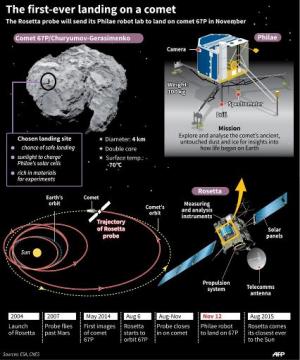
Europe set to make space history with comet landing
November 9, 2014
Rochester byelection: local health concerns overshadow Europe
November 9, 2014Like December 7, 1941, November 22, 1963, and September 11, 2001, November 9, 1989, is one of those dates we remember in freeze frame. It is the rare exception that also makes us think of Wordsworth. Bliss was it in that night to be alive, and to be in Berlin was very heaven.
But the real beginning of the end for the Berlin Wall, of course, was 30 days earlier and 120 miles away, in Leipzig, where 70,000 peaceful demonstrators took to the streets, which were lined with militiamen, police, and live ammunition, uncertain whether they would get home again. But East Berlin blinked and its Leipzig surrogates got cold feet.
Meanwhile, thousands of East Germans continued streaming across the Czech and Hungarian borders, as they had since September, when Hungary opened its border with Austria. From there, they proceeded to that other Germany, which, for most of them, had been another planet since 1961.
Virtually everyone got the message. Soviet leader Mikhail Gorbachev was neither Leonid Brezhnev nor Nikita Khrushchev, let alone Joseph Stalin. Nor was East Germany China. Berlin in November was not Beijing in June.
The opening to the West was announced almost inadvertently, just in time for the evening news, at what still passed for a routine press conference. Within hours, rivers of Trabis, the little cars with lawn mower engines that were an East German specialty, were flowing through the Wall. Crowds of West Berliners looked on, bemused as the dash for freedom morphed into a run on bananas.
By the end of the year, ever-proliferating banana jokes signaled that the euphoria was approaching its expiration date. What felt initially like the final scene of “Fidelio” looked increasingly like an avalanche of poor relations.
Yet only steps from where the Wall stood a few weeks earlier, Leonard Bernstein performed Beethoven’s Ninth with an orchestra recruited from both Germanies and much of the musical world. Where Schiller’s text said “Freude” (Joy), the chorus now sang “Freiheit” (Freedom). Restraint was never Bernstein’s style. But “Let Lenny be Lenny,” seemed entirely appropriate. The broadcasts reached an estimated audience of 10 million in 20 countries.
